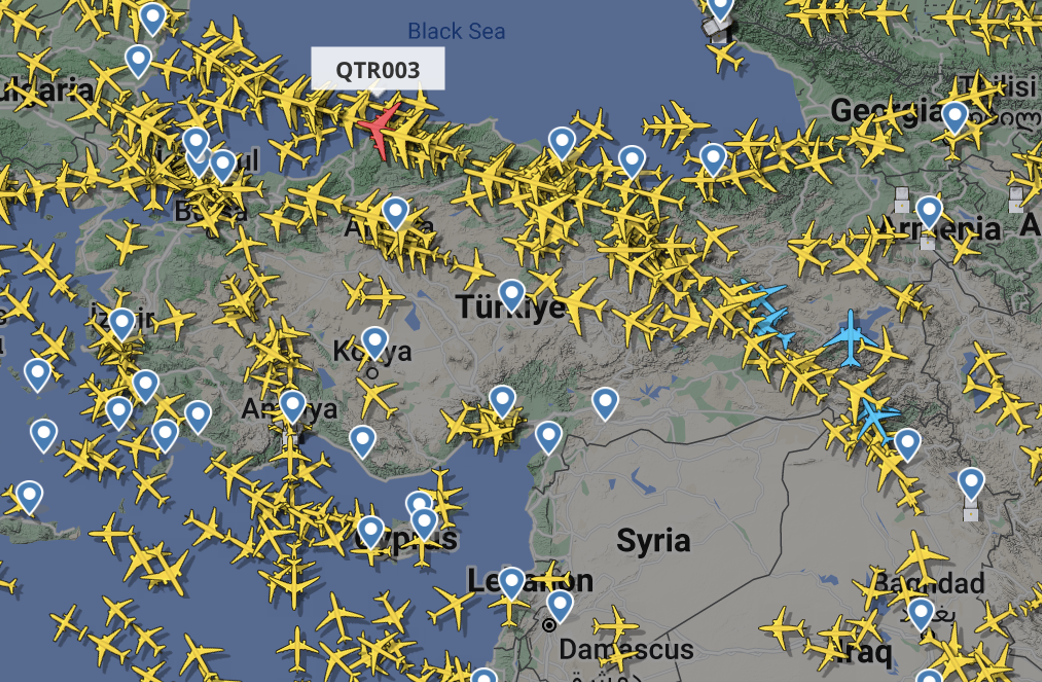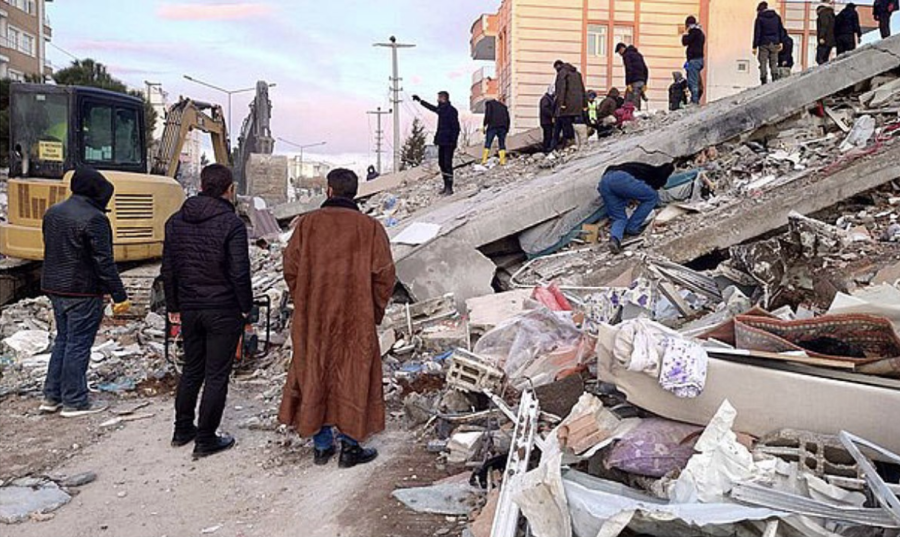Op-Ed: Humanity in the Face of Natural Disasters
The aftermath of the earthquake’s destruction in Adıyaman, a city in southeastern Turkey.
On Monday, February 6, a deadly earthquake claimed—as of this posting—over 33,000 lives on the other side of the globe.
Two 7.8 magnitude earthquakes struck Turkey, Syria, and surrounding areas between the early hours of the day and midday, accompanied by dozens of aftershocks. The massive quake’s epicenter was located south of Turkey, with shock waves spreading across northern Syria and parts of Lebanon, leaving a trail of destruction in its wake.
According to the U.S. Geological Survey (USGS) analysis, the quake was the most powerful in the region in a century. Turkish seismologists reported, “The power of this earthquake is equivalent to 130 atomic bombs exploding.”
On thee day of the earthquake, the head of Turkey’s disaster service, Yunus Sezer, initially reported at least 2,921 fatalities. The Syrian state news agency reported at least 1,451 deaths.
As of midnight on February 8, more than 16,000 have been reported deceased. Tens of thousands more were injured, according to the Turkish and Syrian governments, along with thousands of collapsed buildings, causing incalculable damage.
Unfortunately, the aftermath of the earthquake and its aftershocks are not the only environmental concerns in the area. A cold, wet chill is moving through the region, with low pressure currently hanging over Turkey and Syria. Temperatures are also predicted to plummet, causing health concerns.
Unfortunately, thousands have been displaced and exposed to extreme cold. Combined with the lack of food and water, without outside aid, unfortunate victims continue to be at risk of frostbite or hypothermia.
In the aftermath of the disaster, the European Union, the United Nations, China, India, the United States, and Russia were the first to send their condolences and provide emergency support to Turkey and Syria.

From the map above, it’s clear to see that numerous planes from over the globe are offering relief to Turkey. At the same time, Syrian airspace is almost empty, even if many flights pass through the Turkish-Syrian border.
Recovery efforts are ongoing, but the contrast is stark. Syria, which also had a major earthquake, with much tougher conditions and just as severely affected, could not get the same kind of aid as Turkey; this is because many countries still sanction Syria, and aid countries are reluctant to contact the Syrian government directly.
In the private sector, many companies have organized on the well-known crowdfunding site GoFundMe to help Turkey, while there are only a few such sites for Syria—some of which are even tied to Turkish donations. Even though there are still many people donating to the Syrian victims, this highly unbalanced situation is disappointing. As many Syrian earthquake crowdfunding pages can only be blocked under the sanctions act.
Politics is politics, but in the face of natural disasters, we share a common identity in our humanity to help each other. It would be terrible if world leaders chose to ignore the suffering of civilians because of any political issues.
I hope that the world can act upon the noble belief that human beings should help each other—especially in times of crisis.






















































